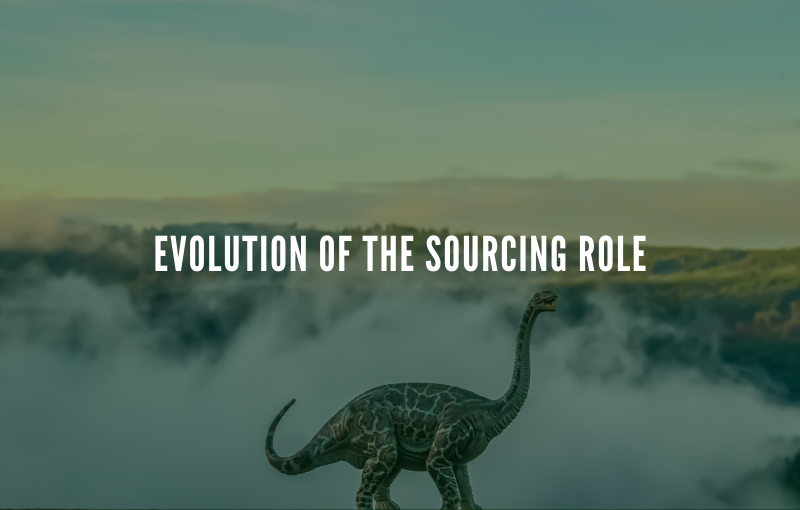The legacy Sourcer role was such an anticipated position for talent acquisition departments. Not many of us ventured to envision the evolution and maturity of the job title. The legacy Sourcer job description itself is typical: find passive candidates, get them interested.
But today, the role of Sourcer has taken on additional forms, offering variety and strategy opportunities unrealized explicitly at its birth.
The Legacy Sourcer
This is the typical and imagined Sourcing occupation. Sourcers work specifically off reqs or aged positions. They identify passive candidates for interest and pursue these unique candidates over time. If you are new to the Sourcing game, this might be the type of Sourcer you know or have. The OG Sourcer if you will.
The Community Sourcer
The Community Sourcer is a boots-on-the-ground employee (pre and post-COVID, of course). In other words, someone must attend chamber of commerce meetings, represent us at military and veteran events, partner with local nonprofits, attend and promote diversity and inclusion engagements, and leverage the local government associations and organizations.
Think about this role as you would a college recruiter. However, instead of going to college events, this person focuses specifically on local community resources. Subsequently, the success of this role is hard to measure. The candidate may never actually give the community Sourcer credit for interest, but the partnerships have intrinsic value.
Before the Community Sourcer job, Recruiters would make themselves available to attend as many of these events as possible, but predicated attendance by req volume and inconsistent.
You want a partner the community can rely on and get to know. Think about how many times you have said, “oh, I wish I could go to that, but I don’t have the time.” It is the Community Sourcer’s job to be that person and leverage those external relationships.
The Pipeliner
The Pipeline Sourcer role is a dream job for those who love repetition. It takes a particular person to be successful in this role, but trust me; there are talent professionals who will not only enjoy the job but excel at it. This Pipeline Sourcer rarely talks to a prospect.
Their role is to stuff the CRM with candidates that match the company responsibilities for hard to fill positions. The Pipeline Sourcer identifies candidates, searches out their work experience and contact info, and completes a profile in the CRM for the Recruiter or Marketing department to engage with. A piggy bank is no good if it is empty and without coins. Plus, the CRM is worthless if someone isn’t filling it with candidates.
This is a research role for a digger and one who likes to work independently.
The Industry Evangelist
Some roles require a license, a certification, specialization, experience, or a security clearance that the average Sourcer will just never understand. You must have done the job or been in that world. This Evangelist answers these specialized questions to potential candidates and sells the role, unlike someone outside of the know can do.
An example of this role is a Nurse Evangelist. Hiring a current or previous licensed RN with experience in the specialty you are hiring for gives applicants someone to talk shop to. It’s a competitive advantage to have this person source and hold the hands of these specialized candidates.
The Socials Sourcer
It is very difficult to be an expert in every social media medium for any talent acquisition professional. New sites pop up frequently. A person could spend all day in Reddit or the TikTok app. Not an exaggeration.
Additionally, there are specialized geographic locators and search functions in social media sites that the average Sourcer hasn’t perfected or hasn’t found time to perfect. Hiring a Social Media Sourcer assures you cover your bases on all social sites.
The AI Sourcer
Artificial intelligence chat-bots and candidate matching software are on the rise. You log out, go to sleep, and overnight AI technology has scoured the internet for potential candidates. However, someone must follow up with these automated leads. Recruiters may not have the time to follow up as they should, but an AI Sourcer is primed to close the deal.
A previous Recruiter does well in this role, someone who likes to build relationships but maybe doesn’t have the technical ability to source all day. I call the role “the closer,” someone who takes the warm lead and turns them into a viable applicant.
Closing
In summary, take some time to research what the best type of Sourcer is for your organization. Maybe it is one of each!
Be prepared; each type of Sourcer will have different metrics. Perhaps these metrics will be tied to monthly hires, networks grown, reply rates, or customer engagement scores. Certainly, not all Sourcers are created equal.
Embrace all Sourcing has to offer in growing your passive candidate databases by changing with us.
Authors
Christine Hampton
Christine is a Doctor of Business Administration candidate researching talent sourcing strategies in healthcare. This is Christine's 29th year in Talent Acquisition, with the last 9 years focusing on sourcing and recruitment marketing.
Recruit Smarter
Weekly news and industry insights delivered straight to your inbox.





